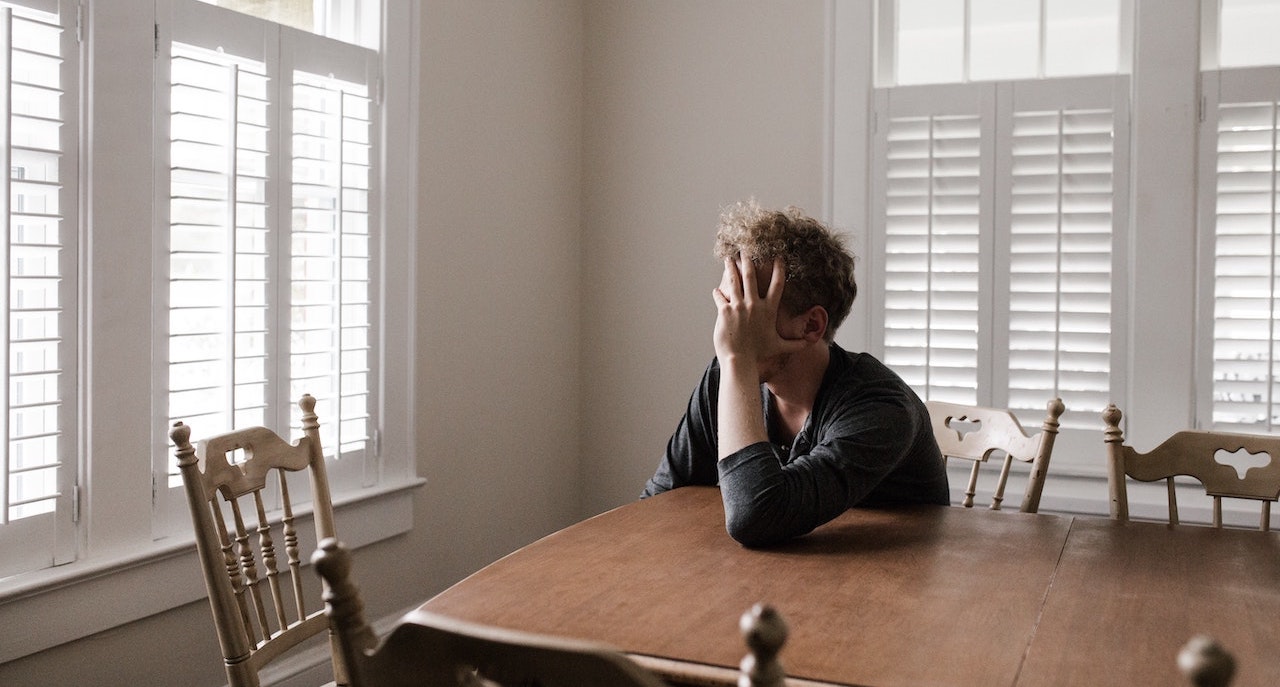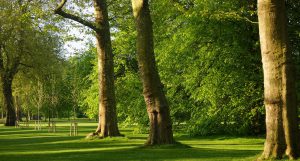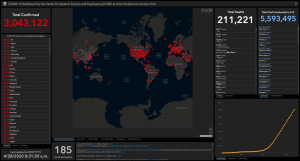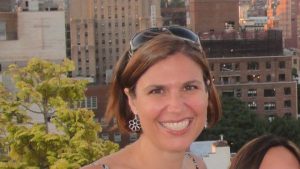Tuesday 28 April 2020

PTSD is a problem in healthcare (Andrew Neel from Pexels)
I am unreasonably excited, and for no good reason, but today all sorts of things have happened almost simultaneously. Who said that lockdown was tedious?
The first good news was the rain. For the first time in ages the Heavens have opened, and the dried greenery of London’s parks is drinking as if parched. The trees like it, the flowers love it and the grass is turning greener almost as I look. However, the especially good news is that the bad weather has kept most of the fair-weather joggers, cyclists and unleashed dog walkers under cover. My morning’s stagger-stumble was as it used to be when lockdown began. I had Hyde Park almost to myself and barely had to take any evasive action. I could stay on the paths without diving for cover into the undergrowth, to escape the threat of a passing antisocial distancer.

This really is Hyde Park in the springtime
Then something even better happened. Masks, which I have long insulted because they offer almost no protection to either me or those around, have now arrived from Ireland. I ordered some, you see, when I realised how the world was thinking. Love them or hate them, when I walk London’s streets, I see more people wearing masks, and there is a certain style to be expected.
These days, to wear a true surgical mask outdoors is bad form, as they are flimsy, become soggy in minutes, and to wear one outside when it is raining is daft. A paper mask also has the image of depriving hospitals of needed equipment as the PPE debate continues, while the government squirms. Today, we also had a minute’s silence at 1100 hours for the healthcare staff who have to date lost their lives. I say to date because there will sadly be plenty more, but a minute’s silence seems a decent thing to offer for the moment. Lack of PPE is being widely blamed and apologies demanded, although I would be astonished if any was forthcoming.
I find it odd that the assumption is that if a healthcare worker is infected, they acquired Covid-19 from a patient. I wonder if that is always true? Hospital-acquired infection barely makes it to the news these days, and yet it was such a big deal before this pandemic. I have colleagues throughout the world who tell me that their greatest threat is another colleague. There are also patients who were admitted to hospital without Covid-19, but who developed it while there. Can we always blame lack of PPE for such tragedy? I wonder.
As for masks, I have chosen linen ones, as Irish linen is known for its quality. I never thought that fashion would change in response to a pandemic, but it clearly has. The ladies especially, have a way of wearing masks that has an element of elegance about it. Although the guidance we have so far received is that masks are a waste of time and may actually be dangerous, the public has taken the initiative, as have many companies, and face coverings are becoming de rigueur. I suspect this will be for the foreseeable future.
To add to the day’s excitement, I also heard from the organisation with which I worked at a London teaching hospital two weeks ago. My task then was to help set up a staff supermarket facility and the project took off like a rocket. I am uncertain I did much to help staff waistlines as so much of what we provided was carbohydrate. Other hospitals now want the same, so I am off today to another teaching hospital to repeat the performance. The hospital is 90 minutes’ walk, 40 minutes’ cycle, or 15 minutes’ drive from where I live. I have elected to drive, not only because it is pouring with rain, but also because it allows me to have a collector’s item. I am now the proud owner of a Coronavirus (COVID-19) Parking Pass, which I can see one day being framed on my wall.

The situation this morning – 28 April 2020 (courtesy Center for Systems Science and Engineering at Johns Hopkins University)
I made it to the teaching hospital for a 1400 hours meeting, to find plenty of volunteers already there. I had squeezed into an ostentatious parking spot, immediately outside the hospital’s front entrance, illegal in normal times, and had placed my new pass in the windscreen with pride. I then hoped no passing policeman would give me a ticket. The meeting point was a marquee to one side of the hospital, hidden behind some hoarding and beside two mid-sized refrigerator containers.
Having attended my fair share of global disasters, I worry about refrigerator containers, so asked my local contact, “Are those what I think they are?”
He nodded. “That’s them,” he replied.
“What’s inside?”
“Not what you think.”
“Not…ummm.”
“No chance.”
“That’s OK, then,” I replied, and our conversation turned to other things.
The marquee had leaked in the rain and needed work to secure it, so the full supermarket was unlikely to begin for a few days. The principle was simple. The NHS wanted to support exhausted staff – believe me, they are properly knackered – so had created a system where staff could order prepacked boxes of selected food. They would collect their boxes at some point and take them home to their families, rather than queuing forever in a supermarket, only to be welcomed by an empty shelf. My organisation, mainly comprising Services veterans, was in support and would remain that way throughout. Needless to say, I was easily the oldest.
The hospital is linked with Oxford and is a centre for a vaccine trial, a topic that is on everyone’s mind at the moment. Oxford happened to undertake some research into a coronavirus vaccine last year, so it has a head start, which means there could be a vaccine available by September. There are signs dotted around hospital walls and hoarding, which point vaccine trial patients in the right direction, so there is clearly much work underway. By the end of May there should be at least 6000 people in the trial. I tried earlier to enter as a subject, but I am too ancient. Those aged 18-55 years are fine. Old codgers like me apparently die of Covid-19 but are no use as guinea pigs. I am unsure whether to be happy or offended. Monkeys have already been inoculated with the Oxford vaccine in the USA (Montana). After vaccination, the animals were exposed to a heavy viral load and remained healthy 28 days later. I now realise I should have pretended to be a monkey.
Just imagine the kudos, and lolly, for the laboratory that produces the first successful vaccine for Covid-19. Imagine also the massive temptation to fudge results. The ethics for vaccine development, especially in this case, must be squeaky clean.

Dr Lorna Breen – it clearly all proved too much for her
The stresses that face healthcare workers were laid bare today when a top doctor from New York City committed suicide. Dr Lorna Breen was the medical director of the emergency department of a New York hospital and had developed Covid-19 herself. She returned to work after ten days of recuperation, but the hospital sent her home. I imagine she was not as fit as she claimed. Recovery after Covid-19 can take a very long time and the more invasive the treatment received, the more likely it is that recovery will take a while. It is something that cannot be rushed, as was shown by Boris Johnson, who has been away from the Prime Ministerial frontline for the best part of a month, and nearly did not make it.
It appears that those who have tested positive for Covid-19, but survived after mandatory quarantine, can easily develop stress, anxiety and fear of the disease. A recent study from China has shown that the prevalence of PTSD (post-traumatic stress disorder) in the general population one month after the Covid-19 pandemic, in a badly affected part of China, was 7%. Symptoms were more common in women than men. Healthcare workers are not exempt. PTSD has been examined in healthcare at other times, not just in this era of Covid-19. For example, work from the USA, which was published in 2009, looked at PTSD and burn-out in nurses. The study revealed that 22% had symptoms of PTSD, and 86% met the criteria for burn-out. No wonder millennials look at me askance when I suggest nursing might be a career alternative. It is a hard profession to join.
To put these findings in perspective when compared with the effects of conflict, 3-6% of returning UK Iraq War veterans suffered from PTSD, although for some reason the rate was higher for USA soldiers. Meanwhile, as many as 30% of Vietnam veterans are said to have experienced PTSD at some stage in their post-war lifetime.
Believe me, I have been a military surgeon, PTSD definitely exists, and you do not need to be shot at to experience it. Avoid it if you can.
